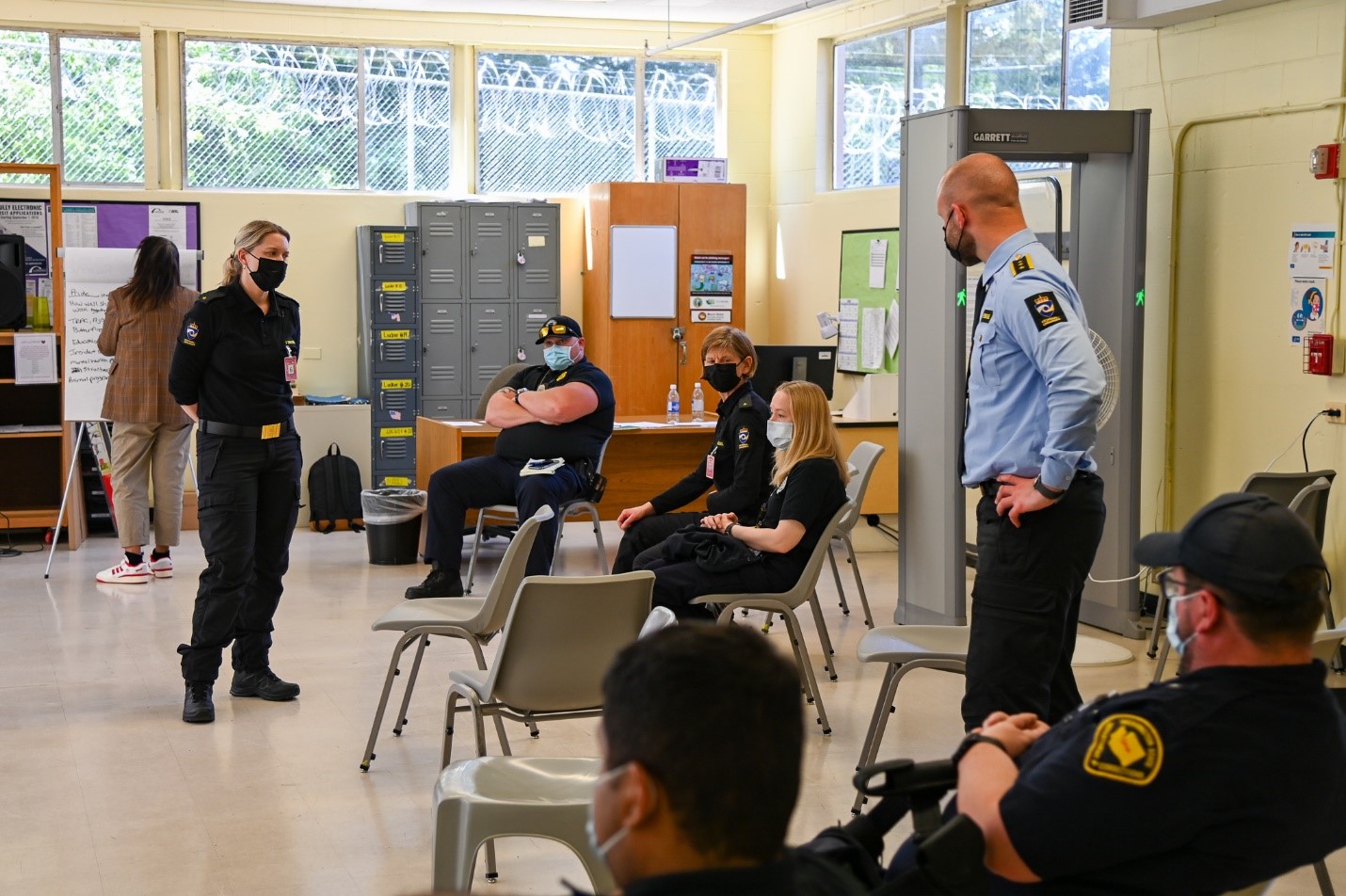
Photo courtesy of Brendan Baptiste, Department of Corrections
The Amend Project has once again returned to Washington State as corrections officers from Oslo, Norway came to visit our prisons in the Pacific Northwest. One of their stops was at Mission Creek Corrections Center for Women where they spoke with correctional officers who visited from various prisons across Washington State to hear them speak. The Amend Project seeks to abolish systems designed to inflict harm and perpetuate unequal access to health and human rights. The intention is to immediately reduce harm and safeguard the dignity and well being of those incarcerated and the staff who work beside them in prison.
The officers from Oslo met with officers to discuss what has been working for them. They brainstormed many topics and acted out scenarios to give participants an idea of how interactions could go. This created dialog where officers could share their opinions on how to properly handle a stressful situation. In many cases, these scenarios created some eye-opening realizations. Officers from Washington also got to tell their story and answer questions from their peers as they just returned from visiting facilities in Oslo.
Although Amend is inspired by the Norwegian prison model, the program is not intended to overhaul the United States prison system into a clone of their system. What is happening is the researching and sharing of practices that are successful at facilities, and then implementing those ideas to create better work and living spaces. Those visiting from Norway have also been able to observe what works well in the US and can then share that information with team members back home. The sharing of these ideas is helping to create a new resource that officers can use to better address incarcerated populations.
One of the tools that has found success is incorporating more interaction between correctional officer and incarcerated. Many incarcerated have felt that officers do not personally care about their wellbeing. This has made a divide in an already “us vs them” community. By learning new ways to interact with incarcerated, officers can help build a more personal relationship with these individuals. These relationships can further grow into one of trust creating a much more peaceful environment.
Norway has found that when they utilize empathy with incarcerated, they greatly reducing conflict and use of force. Empathy is the ability to understand and share the feelings for another. Although an officer may not fully know what it is like to be incarcerated, they have the closest idea as they work besides those who are every day. The reason they are serving time is not important. Just understanding that this is the situation they are now in and recognizing how stressful it can be will help officers to take additional steps to address the problem from the source instead of a place of reaction after the problem has escalated.
Officers are also receiving additional training to be more observant of incarcerated individuals' mental health and behaviors. This can help crews who are just clocking in to be more aware of potential problems that may be brewing. Game plans can then be established to either monitor the situation or to possibly talk down incarcerated before a major occurrence happens.
The North Dakota Department of Corrections has seen a decrease of its use of solitary confinement by 80% since working in Amend practices. Officers at another prison stated a 60% decrease in assault on staff and fewer cases of PTSD affecting staff. This is not a policy change, but an entire change in culture moving away from a place of punishment and back towards a space of rehabilitation. Washington State hopes to see similar numbers moving forward.

